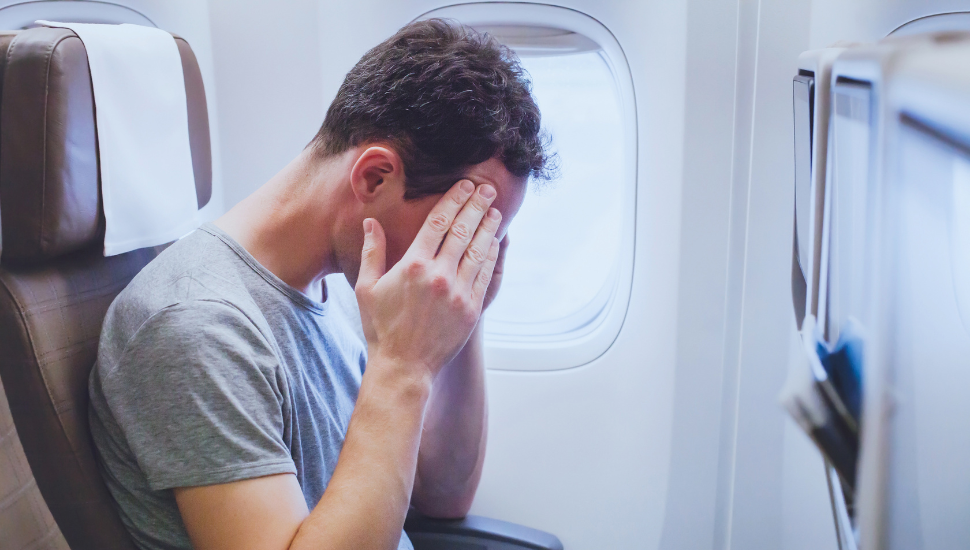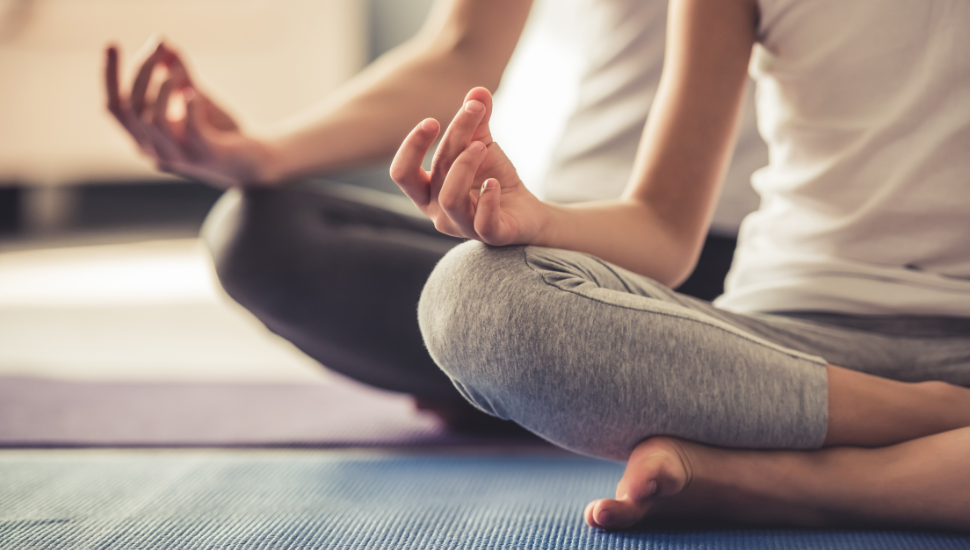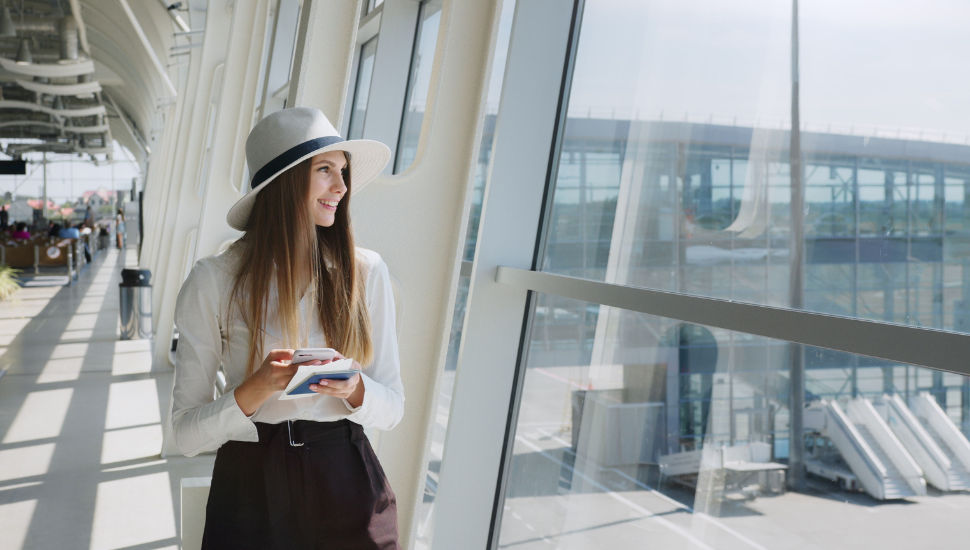Guide to Recognising and Managing Travel Anxiety
Going on holiday or taking a round-the-world trip is meant to be an exciting, enlivening - even transformative - experience.
However, it's not uncommon, as the departure date nears, to feel a little - or a lot - anxious.
The stress of packing and getting to the airport can be plenty to deal with - and that's before you clamber into that aluminium tube!
And even once the jet engines pull you back in your seat and you soar into the wide blue yonder - anxiety can still occur for the rest of the flight, and may continue once you're on the ground.
In this article we explore anxiety about going on holiday, how to recognise it and how to deal with it.
Recognising travel anxiety
It's important not to ignore the signs of anxiety when travelling away from home (or anxiety before travel) - which, just like regular anxiety, can take a multitude of forms.
These might include "butterflies in your stomach" as the holiday approaches; this sense of excitement is caused by the constriction of blood vessels around your intestines and stomach, creating a "fluttery" sensation.
This might be an ongoing or intermittent phenomenon, or it might only occur at certain points - such as getting in a taxi or boarding a plane.
Naturally, holiday anxiety symptoms aren’t limited to stomach butterflies.
Other travel anxiety symptoms might include:
- Rapid heart rate
- Trembling or twitching
- Loss of appetite
- Diarrhoea/gas
- Tiredness
- Poor quality/interrupted sleep patterns
- Hyperventilating
- Obsessively repeating certain behaviours
- Excessive sweating

Reasons for travel anxiety
Needless to say, there are countless possible reasons you might have travel anxiety. Common real or perceived causes might include:
- Fear of an accident while travelling
- Fear of falling ill
- Culture shock
- Language barrier
- Inability to make friends
- Being away from friends or family
- Getting lost
- Getting attacked
- Losing your valuables/bank card/money
Paris syndrome
And then there's the expectation that you MUST enjoy yourself.
"Paris syndrome" is a phenomenon suffered by Japanese tourists who visit the French capital and are deeply disappointed by the experience.
A similar feeling might be triggered by other destinations: India might seem too chaotic; the nightlife of Spain or Greece may be overwhelming; the people of Thailand may not smile as much as you were told they would!
Add snooty airline staff, grumpy waiters and snappy bus drivers and - if you manage to encounter a string of these in one day - you may find yourself disappointed with your destination.
Such experiences can lead to anger, frustration - and our old friend, anxiety.

How to tackle going-on-holiday anxiety
It should be noted that if your anxiety is reaching extreme levels (or someone you know is suffering in such a way), then a medical practitioner should be contacted.
That said, here are some ways to tackle anxiety, either before or during your trip:
Meditation
According to the Mayo Clinic, “Meditation can wipe away the day's stress, bringing with it inner peace.” Many guided meditation apps are available to help.
Yoga
Yoga can have a calming effect on the mind and body, helping you to forget your worries. PsychCentral states “research studies have shown that yoga can help relieve stress and anxiety”.
Exercise
This age-old mood-improver shouldn't be forgotten. Even if a 20 minute jog is out of the question, a brisk walk will elevate your mood. This happens for evolutionary reasons: your brain rewards activity that will help you achieve certain goals (e.g. hunting for your dinner).
According to Harvard.edu,“Evidence shows engaging in any sort of physical activity is one of the best ways to ease symptoms of anxiety”.
Talk to someone
Discuss your worries with your partner, friends or relatives. You might even book a session with a therapist.
According to the American Psychological Association (APA), “Most patients who suffer from anxiety are able to reduce or eliminate symptoms after several (or fewer) months of psychotherapy.”
Healthy diet
A healthy diet free of processed foods, sugar and certain oils may "improve your mood or sense of wellbeing" according to the Mayo Clinic.
Including protein in your first meal of the day can also help you feel fuller for longer, and keep your blood sugar stable.
Stay hydrated
Dehydration can affect your mood.
Avoid caffeine
Caffeinated drinks like coffee can make you jittery.
Limit alcohol
While it may be calming short term, it can interfere with sleep.
Good travel planning
There's nothing worse than arriving in a new town to discover all the hotels are booked up; or rocking up to the train station to find all the seats are full; or not working out how much the taxi should cost from the airport and getting ripped off by the cab driver!
These anxiety-inducing situations - and many like them - might be prevented by good travel planning.
Travel planning tips that could reduce your anxiety:
- Book accommodation in advance
- Research how to get from the airport to your hotel (and how much it should cost)
- Understand the exchange rate so you don’t get over charged
- Learn a few words of the local language
- Have several bank cards (in case one fails)
- Take our comprehensive travel insurance to help if something goes wrong

Other options
Some medical practitioners argue that opting for a healthy, non-pharmaceutical solution to anxiety is best.
However, in extreme cases - if the anxiety is interfering with your enjoyment of life or your daily activities - a pharmaceutical solution may be offered.
Air travel is a big fear for many people, so you’re in good company if you don’t like the idea of getting on a plane.
Your GP might be able to offer something like beta blockers - which are often given to help pre-driving test nerves.
"Like falling out of a tree"
Solo travel can be especially anxiety inducing - particularly for the first time. This can go double if it's a longer trip.
But it's important to recognise that some anxiety or nervousness can be good: once your brain and body overcomes its fear of travel (and all the anxieties that go with it), you may well feel a great deal better thanks to the good old risk-reward system.
And it could be easier than you think: once you're buckled into that airline seat, travel may be "like falling out of a tree".
Getting out of a travel rut
It's not uncommon for a long-term traveller to get tired, homesick, or to simply not like the place they are in. The locals, fellow tourists or the general environment may not be to their taste, or they may just have had some unpleasant encounters.
An easy solution to being in place you don’t like is to book a ticket elsewhere.
Not everyone likes the same things, so it's perfectly alright to just move along!
Conclusion
Many people suffer from some form of travel anxiety, so it’s nothing to be ashamed of (indeed, shame can itself create an echo-chamber of anxiety!).
There are many ways to help yourself overcome this phenomenon - or seek help from someone else, be they a friend, yoga teacher, or doctor.
Get a Quote